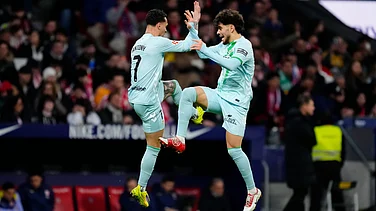In 1981, John McEnroe became Wimbledon champion, ending Bjorn Borg’s five-year reign. Some seven thousand kilometres away in the Mumbai suburb of Bandra, an eight-year-old thus found his hero. Sachin Tendulkar (already an aggressive brat with a penchant for beating up older boys) decided he was going to be McEnroe.
He moved around with a racquet in hand. The curly hair was already in place, and the headband screamed out his obsession. Wristbands completed the picture. The nickname followed. Tendulkar was ‘Mac’.
What if the tennis-obsessed boy had stuck to his first love? What if—like our over-ambitious parents today—Tendulkar’s family had enrolled him in an ‘academy’ and pushed him into age-group tournaments? Given his ball sense, natural competitiveness and sporting intelligence, it is reasonable to assume Tendulkar might have been national champion at 16 —the same age when both Ramanathan Krishnan and Ramesh Krishnan won that title.
In a couple of years, influenced by big brother Ajit, Tendulkar transferred his obsession to cricket. What if Ajit had not bothered? The question must take its place among the many ‘what ifs?’ of Indian cricket. What if a sharp-eyed uncle had not noticed a mix-up in the hospital where Sunil Gavaskar was born and had wound up next to a fisherwoman whose baby took his place? He might still have attended nets, of course, but from a fishing boat!
What if Tiger Pataudi had not lost an eye at the age of 20? England all-rounder Trevor Bailey once told me that with two good eyes, Tiger would have been in the Bradman class. What if Kapil Dev had been given his proper rations when he attended a coaching camp as a youngster and not been insulted by an official who told him, “There are no fast bowlers in India.” What if, what if....

Reach out A young Tendulkar tests his forehand in Lahore during his debut tour 1989. (Photograph by BEN RADFORD/Getty Images)
Historians (and sports fans) love playing the ‘What if...?’ game, except that the former use the more impressive term, ‘counterfactual’. What if Hitler had won the War? Would you be reading this in German?
What if Tendulkar had not existed? The glib answer—“We would have had to invent him”—does not hold because that is made in hindsight. In practical terms, there would have been no gap, no uncomfortable feeling that something was missing from the Indian line-up because we would not be any wiser. Would we have fantasised about a batsman scoring a hundred international centuries and 30,000 runs over 21 years?
Sporting fantasies tend to be in the abstract. In 1932, England dreamed of a bowler who could contain Don Bradman, not someone who would bowl bodyline with pace and accuracy, to a specific field-setting.
Without Tendulkar, Indian batting would have continued to perform at a lower level. Before Tendulkar, India won just 43 Tests while losing 89. Since his debut, India have won more matches than they have lost (66-50), and in the 176 matches he’s played (not including the Cape Town Test), the figures are 61-46. Over a couple of generations this has meant a major psychological shift. Today, youngsters think, naturally, of victory. Not of honour in defeat, as was the mindset earlier.
Would this have happened without Tendulkar? Doubtful. He was first among equals in a team with world-class performers—Sehwag, Laxman, Dravid, Ganguly, Kumble. And when the Indian board was flexing its financial muscle, it was important that the national team showed its cricketing muscle. Power comes from both money in the bank and the unstoppable straight drive.
The batsman who made his debut soon after Tendulkar, Praveen Amre, began with a century in Durban; another, Vinod Kambli, had double centuries in successive Tests. With the benefit of hindsight we can say neither was a long-term prospect, capable of carrying the batting on his shoulders till a new generation established itself.
The role of Tendulkar in the development of those who played around him—both Sehwag and Dravid have touched upon this—has been crucial, and we will never know how well they might have performed without Sachin’s example. Our standards are so much higher now.
Tendulkar is without doubt the greatest batsman one-day cricket has produced, yet he has no World Cup to show for it; the Test ranking cannot be so clear-cut. Yet his impact on the team has been greater.
Without Tendulkar, we would have been calling Rahul Dravid the greatest Indian batsman of all time, and referring to him as ‘God’ with the usual lack of embarrassment. Statistically there is little to choose between the two, but psychologically it is another matter.
Advertisers look either for great performers or sportsmen with attitude. Which means they would have had to wait till Sreesanth, the Mallu Mac, came along to get their teeth into something. Without Tendulkar, budgets would have been smaller and television audiences likewise. On the other hand, we might have had the opportunity of watching a match on a clean screen, without creepy-crawly ads all over or those epaulets selling phones or chewing gum that shine on the batsmen’s shoulders as the bowler approaches.
After 21 national championships in a row, the tennis star Tendulkar would have had a bank balance that might have managed an occasional dinner with his friend Dravid. He might even have teamed up with Michael Ferreira to complain about the undue prominence given to cricket. Wimbledon’s loss has been Eden Gardens’ gain.


























